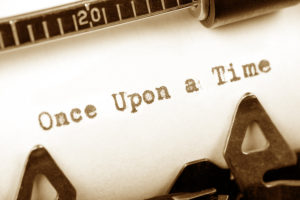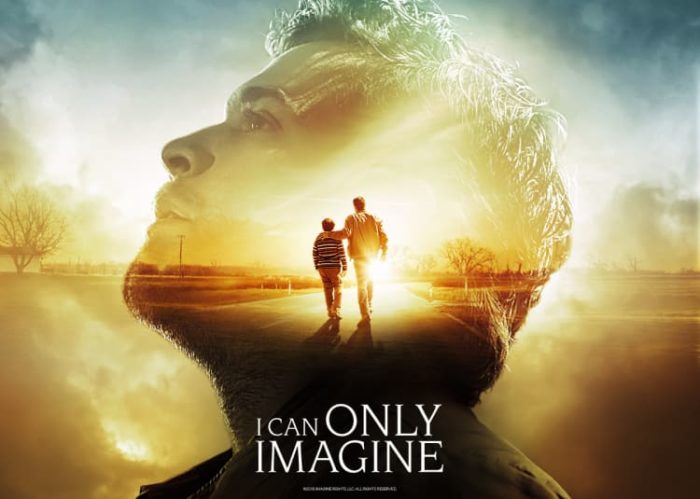Since Reading Changes Us . . .
Last week I stated the case that reading changes us, even when we read “just for fun.” The same might be said about watching TV or seeing a movie. It’s fiction, it’s stories that not only introduce ideas we can think about but characters and action that can engage us.
Stories serve as illustrations and as examples, but they also reinforce or, conversely, confront deeply held values or traditions. They introduce their audience to new ways of doing things, even if the “new way” is actually an old way.
 Some Christian writers, I suspect, hold the belief that stories should primarily serve as examples, which in turn reinforce the truth of Scripture. I like those stories and I think they can be an encouragement to believers. Take, for example, the true story, made into a movie, about Bart Millard, lead singer for the band MercyMe, and what brought him to write the popular song “I Could Only Imagine.” I find his story inspiring, encouraging. It strengthens my faith.
Some Christian writers, I suspect, hold the belief that stories should primarily serve as examples, which in turn reinforce the truth of Scripture. I like those stories and I think they can be an encouragement to believers. Take, for example, the true story, made into a movie, about Bart Millard, lead singer for the band MercyMe, and what brought him to write the popular song “I Could Only Imagine.” I find his story inspiring, encouraging. It strengthens my faith.
But what about the stories that challenge and confront? Are Christians not supposed to write that kind? Or read them?
 Actually, I think those are exactly the kind that Christians should write for the questioning world—not treatises defending our faith, but stories about people who living in this world that is filled with ideas and ways of doing things that call into question the things Christians believe, that the Bible teaches.
Actually, I think those are exactly the kind that Christians should write for the questioning world—not treatises defending our faith, but stories about people who living in this world that is filled with ideas and ways of doing things that call into question the things Christians believe, that the Bible teaches.
I’ll name just a few things that are more and more prevalent in our culture and which stand against a Christian worldview, things which stories can, and should, challenge and confront:
1. Truth is relative, not absolute.
A shocking number of people believe this idea of truth in western culture. Consequently the idea has grown up that something might be “true for you” but “not true for me.” Of course the application of that idea depends on context, but when it comes to God and what He reveals in Scripture, there is no equivocating, even when we can’t fully comprehend. For instance, God is love, even when I, like Job, am not experiencing loving circumstances. My limited perspective and temporal circumstances don’t cancel out the truth about God.
2. “Family” means whatever you want it to mean.
Some seven years ago the New York Times ran an article asking “How do you define ‘family’?” The salient question in the article was “Do you think a new definition of family is starting to emerge in our society?”
Last year a website called CyberParent ran an article that concluded,
Now more than ever before, it is important for people to understand that when it comes to what is a family, there is no such thing as normal. Every person, every child, every parent, every couple has a unique situation, and to try and define everyone in one black and white term would make no sense.
Family is not defined by biology, or marriage, or even a home. Family is the people you love and who love you back, the people you feel safe around, and the people you can count on to be there when you need them.
Yes, times change, but when it comes to understanding God as our Father, the Church as the bride of Christ, the role of husbands described as like Christ who gave His life, and so on, I have to wonder if our society isn’t losing a lot that “prepares the heart” for the gospel, when we redefine a basic unit of society such as “family.”
3. The Bible is a book of fairytales.
The corollaries, of course, are that God does not exist, the supernatural is simply a part of your imagination, there is no impending judgment, heaven and hell are not real places, and there is no afterlife.
Not everyone believes all of those ideas, but I suspect that may change. After all, if we remove the foundation, why shouldn’t the whole building collapse?
4. Sin is a myth and people are actually good and deserve only good things.
Never mind that universally people still agree nobody is perfect, the growing perception is that whatever a person does that makes him “not perfect” is still not sin. It’s actually a way our society is divorcing a person from responsibility for his action. He might have had a bad childhood, which caused him to develop antisocial behavior. He might have been the victim of a crime or government misconduct or religious abuse, or any number of things, all of which certainly do make up an individual’s experience, but none of which remove his responsibility for his own actions.
5. Government should fix things.
Perhaps some parts of the country or western society have a different take on this one, but over all the trend seems to be to turn to government to protect us from ourselves. Not common sense. Not family (even the redefined one), not the neighborhood or the community, not the church. School maybe, if it’s a public institution. Then it can make sure kids have a good breakfast, the proper instruction about gender issues, one view on the origin of the universe, safe zones and trigger alerts, and many other issues that the government thinks is important.
 These ideas and many more contribute to a worldview that infiltrates our books and movies. And where are the stories challenging or questioning them?
These ideas and many more contribute to a worldview that infiltrates our books and movies. And where are the stories challenging or questioning them?
Christians have a great opportunity to serve as prophetic voices, as voices of warning, that these trends don’t end well, that Truth does exist and so does sin, that the Bible is not a fairytale, and so one.
In many ways, Christian writers couldn’t be living in a better time, because people need somebody to challenge the prevailing worldview, because people love stories, and because digital publishing has changed the writing industry. Now we writers need to step up to the task.











































Maybe it’s because I’m a Young Whippersnapper, but I’m pretty okay with people drawing their own circle around who they include as “family.” Because as I see it done, it’s meant to release you from toxic and/or abusive people and include people who are loving and important to you.
Notleia, I understand where you’re coming from but God uses the image of family so much in the Bible, especially about Himself and us. Of course we’re adopted, so He has a big circle of His own. I just think we lose some understanding of what a father’s love looks like when there’s no father in the home.
Becky
Maybe, but your father figure doesn’t have to be your biological one.
I see the concept of “father love” used more as a stick to punish single moms than anything else, from people who value rules over other people, so it makes me wonder if it’s really important to have specifically “father love” rather than enough “generic” love to make sure the kids aren’t emotionally neglected, especially if the bio dad is an abusive bunghole. Plus it unintentionally(?) poops all over adoptive parents and step-parents to hold genetics as mattering more than love and care.
The blood of the covenant is thicker than the water of the womb, after all.
Addendum that may be relevant or not: There are other cultures who refer to pretty much everyone in the community, related or not, as auntie/uncle, grandma/grandpa, big brother/sister. In Navajo culture the maternal uncle would be the “father figure” to a boy-child.
The current idea of the nuclear family is a recent addition to the cultural lexicon, so if we find it insufficient, why not follow or adapt other models?
You actually have made my point, Notleia. When families are dysfunctional, what do the kids think about God who reveals Himself as a Father?
Becky
???
I do not grok. Having a father in the picture does not automatically make it NOT a dysfunctional family.
To an extent, understanding some basics of what, say, a good father, husband, etc. should be is actually what can help someone escape an abusive situation. A lot of times, abusers like to pass their behavior off as ‘normal’ or ‘deserved’, and one of the important steps victims need to take is to realize that abuse is not normal. In this case, learning what a good, normal father figure should be would help them realize that they are in a situation they should be trying to escape, because no matter what the abuser says, they are not matching up to what a healthy parent or spouse is.
Recognizing things like that doesn’t have to disregard adoptive families, etc. It just helps us understand types of relationships better. Even if someone doesn’t grow up knowing their biological father, for instance, understanding what a good father is can help them understand and appreciate it more when, say, an uncle steps in and mentors them like a father normally would.
There’s a lot of good points in the article but since family seems to be the reply topic I’ll comment on that.
For years now companies like Disney have redefined what a family is and unfortunately the millinials have fallen for it. A family will always be father, mother, children, grandchildren etc. Adoption is a sad fact but a fact non-the-less in this world so therefore it’s an extended family due to circumstances beyond the child’s control. Just like a marriage will always be husband and wife no matter what the government says it is. They don’t make the definitions.
Is it perfect? Heck no! But it’s how God has designed it. Those that I call close friends that I may or may not love more then my own blood relatives are still my friends and not my family. I’d give my life for any one of them. In fact, there are those in my family that if it weren’t for the that fact they were family I’d have nothing to do with them. Most of us have at least a couple in our families. But BECAUSE they are family I don’t give up on them. They need Christ and it’s my responsibility to make sure they see and hear it from me. Most friends come and go but family stays together.